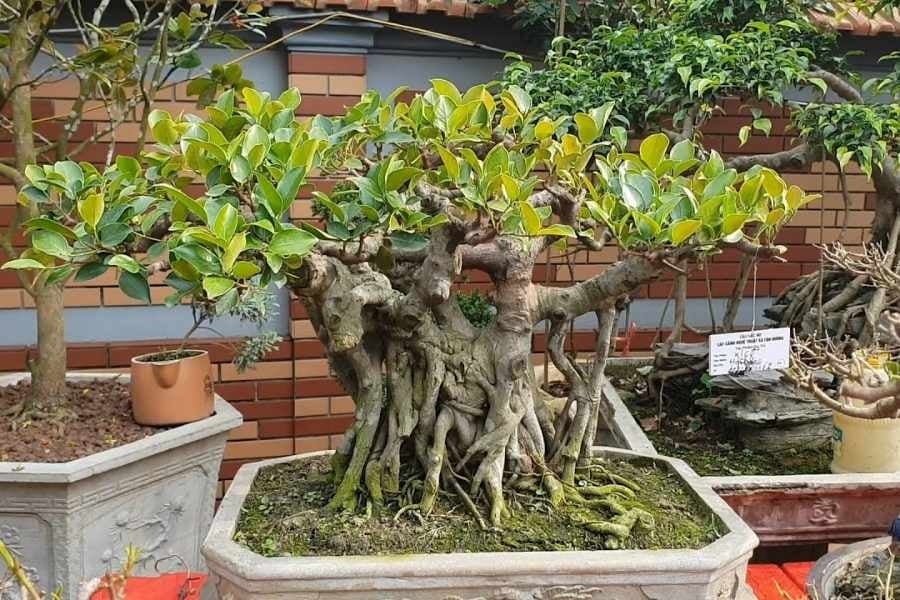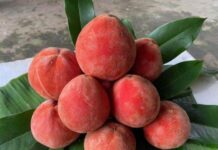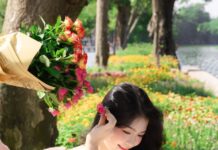1. What are “evil trees” in Feng Shui?
“Evil trees” in Feng Shui is a colloquial term for trees that possess negative energy, often absorbing positive energy, emitting negative energy, or creating unfavorable Feng Shui. Placing these trees in front of your door, in the middle of your yard, near a window, or by the main gate can lead to the following:
- Financial stagnation or depletion
- Obstacles in business ventures
- Family disputes and instability
- Deterioration of health and increased susceptibility to calamities

2. 5 Common Trees That Are Considered “Evil” in Feng Shui
Mulberry Tree (Morus alba)
- Reason for Taboo: The word “mulberry” in Chinese is “桑” (sāng), which has the same pronunciation as the word for “mourning.” It symbolizes loss and death.
- Consequence: Planting it near the entrance can attract negative energy, blocking financial opportunities and potentially affecting the health of elderly family members.
Chinese Fir and Pine Trees
- Reason for Taboo: Chinese fir and pine trees are often planted in cemeteries due to their symbolism of longevity and are used to escort souls to the afterlife. While they carry positive energy in temples, they are considered inauspicious when planted in front of residential homes.
- Consequence: They can create a sense of gloom and heaviness, impacting health and causing stagnation in one’s career.
Weeping Willow Tree
- Reason for Taboo: In Feng Shui, the weeping willow represents negative energy, sadness, and dissipation due to its drooping branches. The saying, “avoid willow in the front and mulberry in the back,” emphasizes this belief.
- Consequence: It can evoke a melancholy atmosphere, absorbing positive energy from the house. Over time, this can lead to a decline in the homeowner’s mental health and the inability to retain wealth.
Banyan Tree

- Reason for Taboo: The banyan tree is often associated with sacred places like temples and shrines and is believed to house spiritual energies, both good and bad. Planting them within residential premises, especially in yards or near entrances, can invite negative spiritual influences.
- Consequence: It can disrupt the energy flow in the house, leading to disputes and potential spiritual harm.
Cactus
- Reason for Taboo: Cacti, with their sharp spines, symbolize negative energy in Feng Shui. Placing them in areas that welcome positive energy, such as the main entrance or balcony, will block financial opportunities and cause financial losses.
- Consequence: The sharp spines of cacti are also believed to act like poisonous arrows, capable of damaging relationships and causing family discord when placed in the wrong location.
3. Planting Trees in the Right Places – Activating Wealth and Overcoming Bad Luck
Feng Shui is not superstition but a balance between humans and nature. Choosing and arranging trees appropriately can enhance the quality of life and attract good fortune. If you have inadvertently planted any of the aforementioned trees, you can consider the following:
- Relocate the tree away from the main entrance or gate.
- Plant additional trees with positive Feng Shui to balance the energy.
- Place potted plants that align with the homeowner’s element (metal, wood, water, fire, or earth) based on their birth year.
Not all lush trees bring good fortune. “Evil trees” in Feng Shui are often misunderstood or overlooked due to their harmless appearance and ease of cultivation. However, with this knowledge, you can rearrange your space to invite wealth and avoid potential disasters.
Let nature be your Feng Shui ally, not an obstacle to your financial prosperity.































